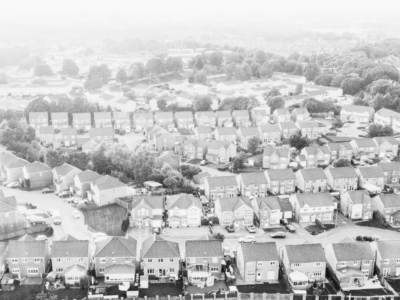House prices in the UK continue to experience a slow-down in the market, increasing by only 1.4 per cent on average in the year to April 2019, which is down from 1.6 per cent in March, according to a recent House Price Index from The Office for National Statistics (ONS).
The average property value in the UK was recorded at £228,903 according to the data, with average house prices rising by 0.7 per cent between March and April. This is compared with a 1.0 per cent increase during the same period last year.
Slight increase in value
Property prices in England rose by 1.1 per cent to £245,128, while house price growth in Wales increased by 6.7 per cent to £163,902 in the 12 months leading up to April 2019, which up from 3.9 per cent in the year to March. Scotland recorded an annual rise of 1.6 per cent to £150,825, down from 3.5 per cent in the 12 months to March, according to the recent index.
Year-on-year, the biggest house price growth was recorded in the East Midlands, at 2.9 per cent, while the lowest annual growth was recorded in London, with prices falling by 1.2 per cent to £471,504. This is up from a 2.5 per cent decline in March.
Nonetheless, prices within the UK varied on a monthly basis, with North East up by 5 per cent, London by 2.4 per cent, East Midlands by 0.9 per cent, the North West by 0.6 per cent and Yorkshire and the Humber and the East of England up by 0.3 per cent. In the West Midlands, monthly prices fell by 0.2 per cent and in both the South West and East they fell by 0.1 per cent, according to the house price index.
Brexit uncertainty
Jeremy Leaf, former RICS residential chairman, commented: “The market is quite volatile, bearing in mind the fall in prices [in April]. The price increases recorded are probably more to do with shortage of stock and lower transactions than sustainable market strength.”
Mr Leaf explained: “The softening in the housing market is reflected in these figures, particularly for buy-to-let landlords who are falling into arrears from the pressure of tax and regulatory changes, as we might have expected.”
Mr Leaf concluded that Brexit uncertainty in the minds of homebuyers is clearly still outweighing almost record-low mortgage rates and employment numbers, as well as improved affordability.





















In our street 3 ex rental properties have gone on market and been sold in last 4 months – and at keen prices same as 2018 so sales supply being aided by this its obvious rental supply is lower than ever . I’ve sold one of my 7 too and one is now air bnb.